Did you know that watermelon is made up of nearly 92% water and contains a powerful combination of vitamins, antioxidants, and natural hydration? Around the world, millions of people enjoy watermelon simply as a sweet summer fruit, but very few realize that it can play a supportive role in cleansing the digestive system, liver, and kidneys. The idea of “flushing out toxins” in just three days may sound too good to be true, but when you look at the properties of watermelon, the benefits begin to make sense.
Imagine this: a fruit so light yet so filling that you can eat large portions without feeling weighed down, while at the same time providing your body with hydration, gentle fiber, and compounds like citrulline that may help the kidneys filter waste. This article will guide you through how watermelon can be used as part of a short-term cleansing routine, why it matters for gut, liver, and kidney health, and practical ways to try it at home. You’ll also learn insights from everyday experiences, cultural practices, and modern nutrition research that show how a simple fruit can have a powerful effect.
Let’s dive into the story of watermelon and how three days might be all you need to feel lighter, more refreshed, and energized.
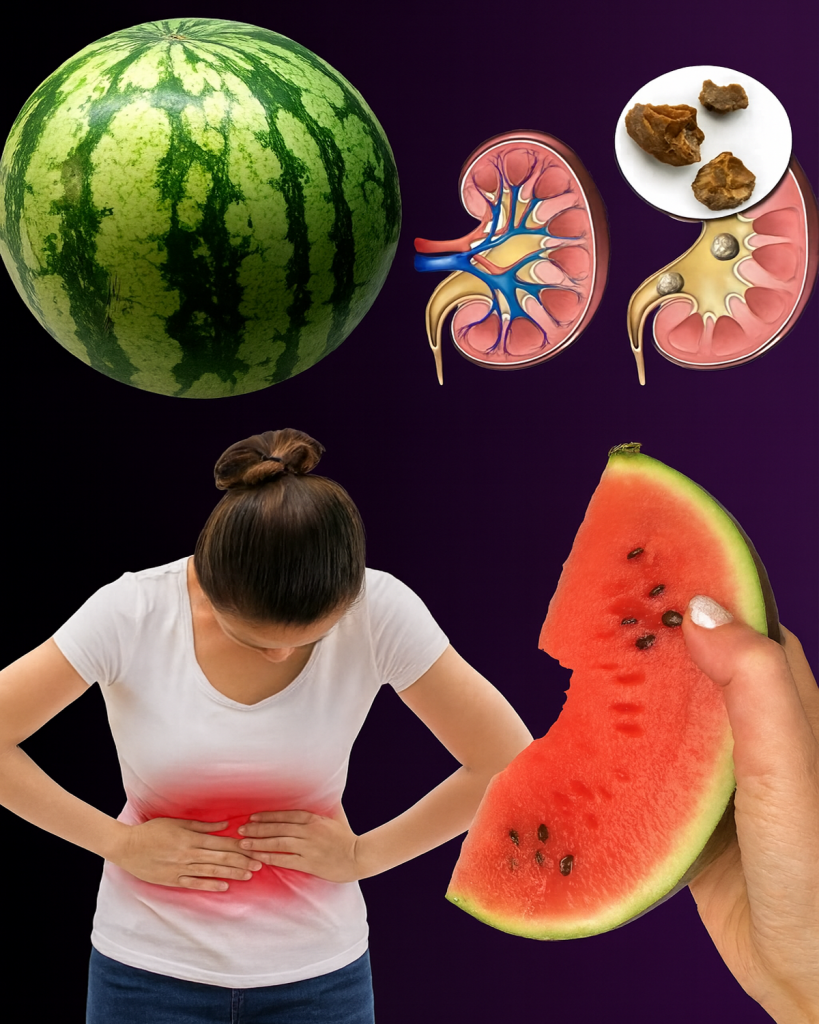
Why Cleansing Matters for Your Body
The human body has its own detox systems: the liver breaks down toxins, the kidneys filter waste, and the intestines process and remove food residues. However, modern diets high in processed foods, sugar, and unhealthy fats can overload these systems, leaving you feeling sluggish, bloated, or tired.
Supporting these natural detox pathways doesn’t mean replacing medical care, but it does mean making food choices that help your body do its job more efficiently. Fruits and vegetables rich in water and fiber can ease digestion and encourage regular bowel movements. Natural antioxidants can help reduce oxidative stress in the liver. And hydration is key to kidney health.
Watermelon, because of its high water content, light fiber, and special compounds, is often seen as one of the best fruits to naturally support this process.
The Science Behind Watermelon Cleansing
Hydration at the Cellular Level
Every cell in your body relies on water to function. Watermelon’s high water content not only quenches thirst but also helps flush toxins through urine and sweat. Adequate hydration makes digestion smoother and prevents constipation, which is essential for intestinal cleansing.
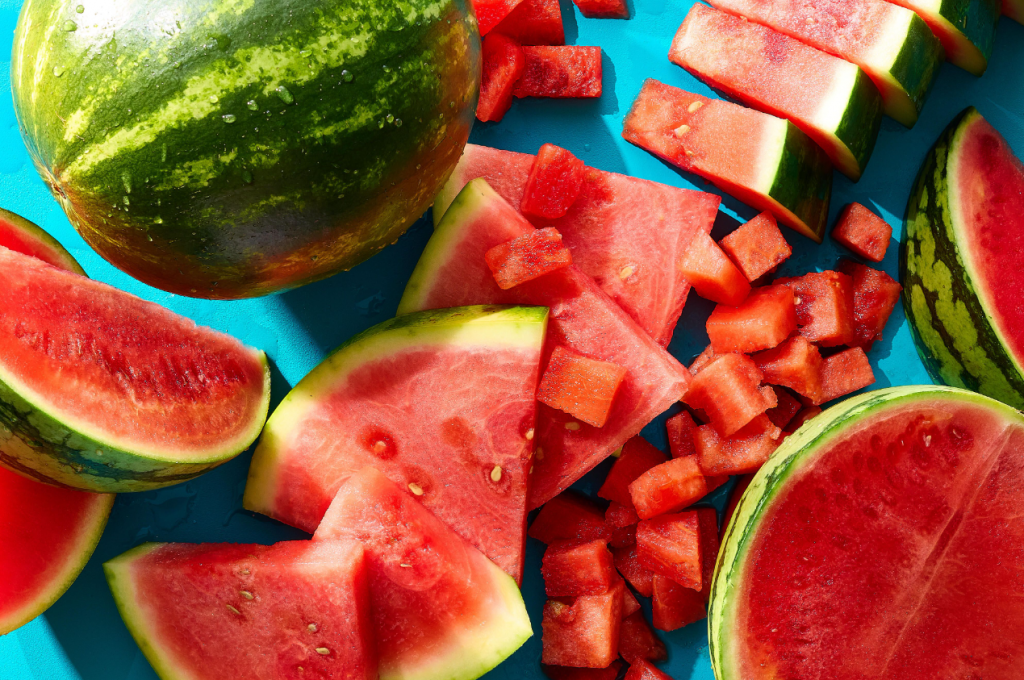
Citrulline and Kidney Support
Watermelon contains an amino acid called citrulline, which the body can convert into arginine. This process supports blood circulation and may help the kidneys function more effectively. Better circulation and kidney function mean more efficient filtration of waste products.
Antioxidants for Liver Health
The bright red color of watermelon comes from lycopene, a potent antioxidant. Lycopene has been studied for its role in reducing inflammation and protecting cells from oxidative stress. For the liver, which is constantly working to break down fats and toxins, antioxidants like lycopene are valuable allies.
Gentle Fiber for the Intestines
While watermelon isn’t as fibrous as apples or oats, it provides enough natural fiber to support bowel regularity without being heavy. This is why people often report feeling “lighter” after a short watermelon cleanse.
The 3-Day Watermelon Cleanse Plan
Before you begin, it’s important to remember that this is a short-term reset, not a long-term diet. Always listen to your body and consult a professional if you have existing medical conditions such as diabetes, kidney disease, or liver problems.
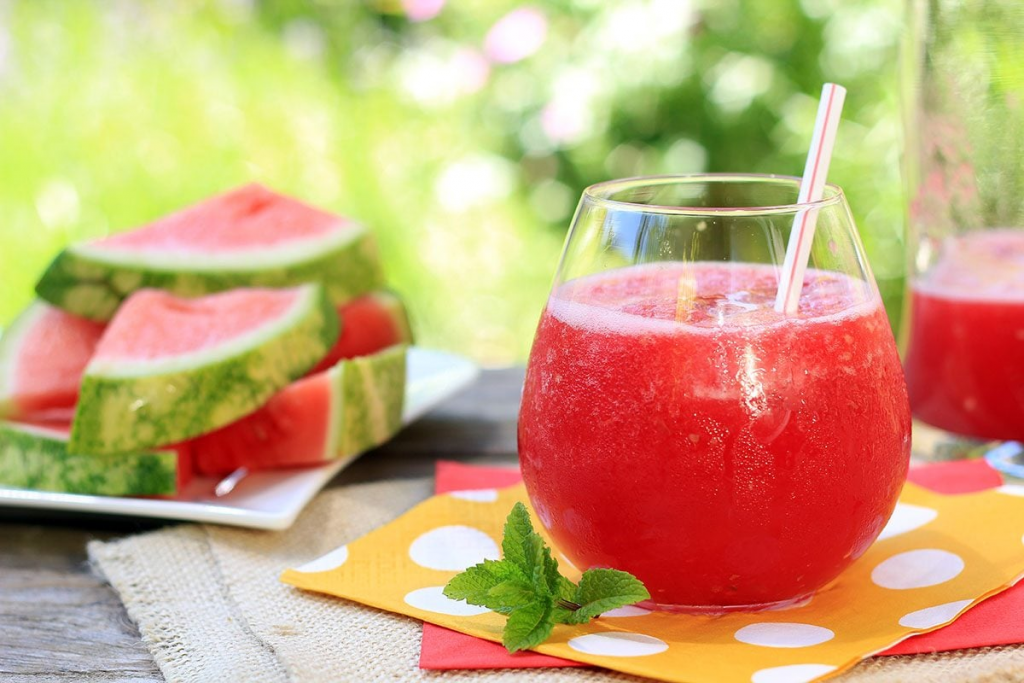
Day 1: Kickstart with Hydration
- Begin your day with two to three slices of fresh watermelon on an empty stomach.
- Drink a glass of warm water with a squeeze of lemon 20 minutes later.
- Throughout the day, replace snacks with watermelon chunks.
- Lunch and dinner can include light meals: steamed vegetables, brown rice, or grilled fish.
- End the day with a bowl of watermelon to aid digestion.
Day 2: Deep Cleansing Focus
- Start with a large watermelon smoothie blended with mint and cucumber.
- Drink plenty of plain water between meals to keep your system moving.
- Keep main meals light and plant-based.
- Use watermelon as your afternoon “snack attack” replacement. This helps reduce sugar cravings while still feeling satisfied.
Day 3: Refresh and Reset
- Eat watermelon for breakfast, lunch, and between meals.
- Add a handful of nuts or seeds for extra protein.
- Dinner can be a light broth or soup, with a few slices of watermelon as dessert.
- By evening, many people report a feeling of clarity, reduced bloating, and improved digestion.
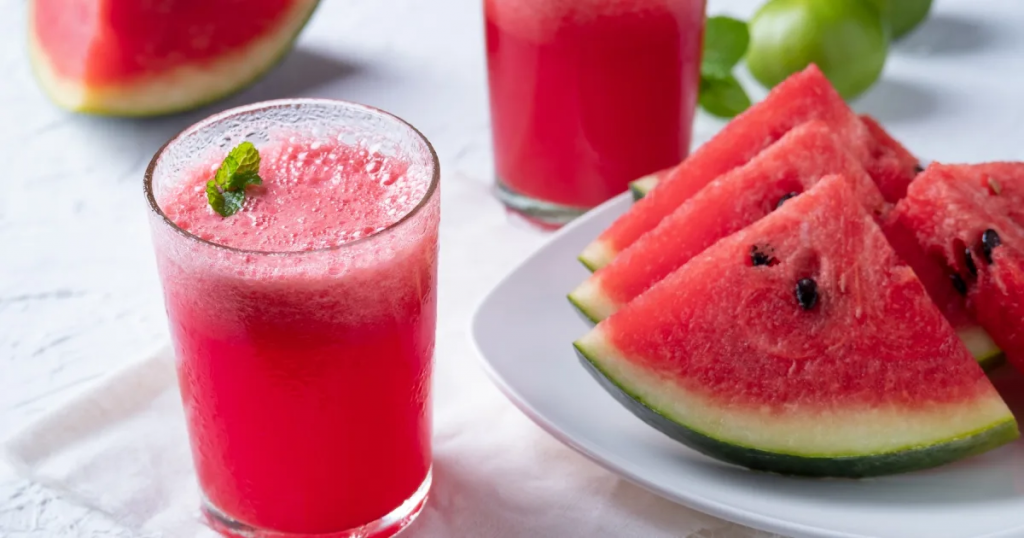
Sample Daily Schedule (for quick reference)
| Time of Day | What to Eat/Drink | Purpose |
|---|---|---|
| Morning | Watermelon slices + warm lemon water | Kickstarts digestion |
| Midday | Light plant-based meal + watermelon | Balanced nutrition |
| Afternoon | Watermelon smoothie | Hydration + energy |
| Evening | Light dinner + watermelon dessert | Gentle on liver and intestines |
Real-Life Experiences and Cultural Practices
Across different cultures, watermelon has long been seen as a cleansing food. In parts of Asia, watermelon juice is given during hot summers to cool the body and “clear heat.” In African and Middle Eastern traditions, watermelon seeds are dried and eaten for their mineral content, which supports kidney health.
In wellness communities today, many people share personal stories of trying a watermelon cleanse and noticing improved digestion, less bloating, and even clearer skin. While these are anecdotal, they highlight how natural foods can make a difference in everyday health.
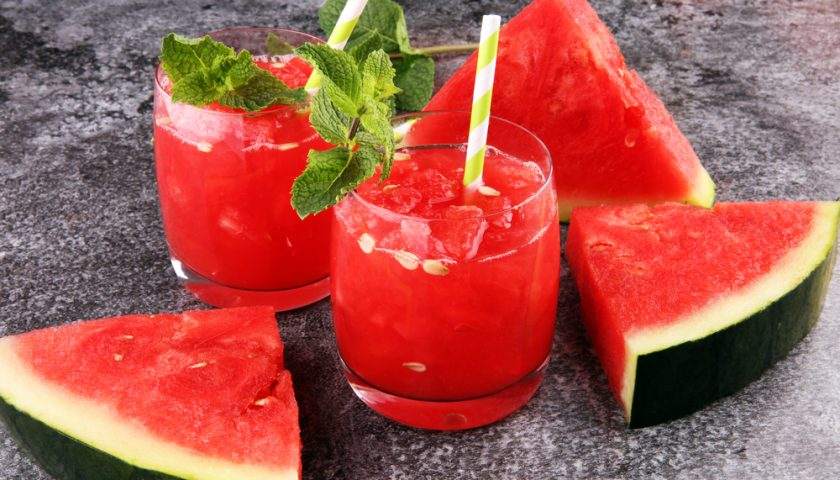
Practical Tips to Make It Work
- Choose ripe watermelon: A heavier fruit with a deep hollow sound when tapped is usually sweeter and juicier.
- Go organic when possible: This reduces exposure to pesticides during your cleanse.
- Stay balanced: Don’t rely only on watermelon for too long. Three days is enough for a refreshing reset.
- Listen to your body: If you feel weak, add small portions of protein-rich foods like nuts or beans.
- Make it fun: Experiment with smoothies, watermelon salads, or chilled watermelon cubes with mint.
Common Mistakes to Avoid
- Eating only watermelon for too many days, which may cause nutrient imbalances.
- Forgetting to drink plain water, which is still necessary alongside watermelon.
- Combining watermelon with heavy, greasy foods, which defeats the purpose of cleansing.
- Ignoring personal health conditions before starting a cleanse.
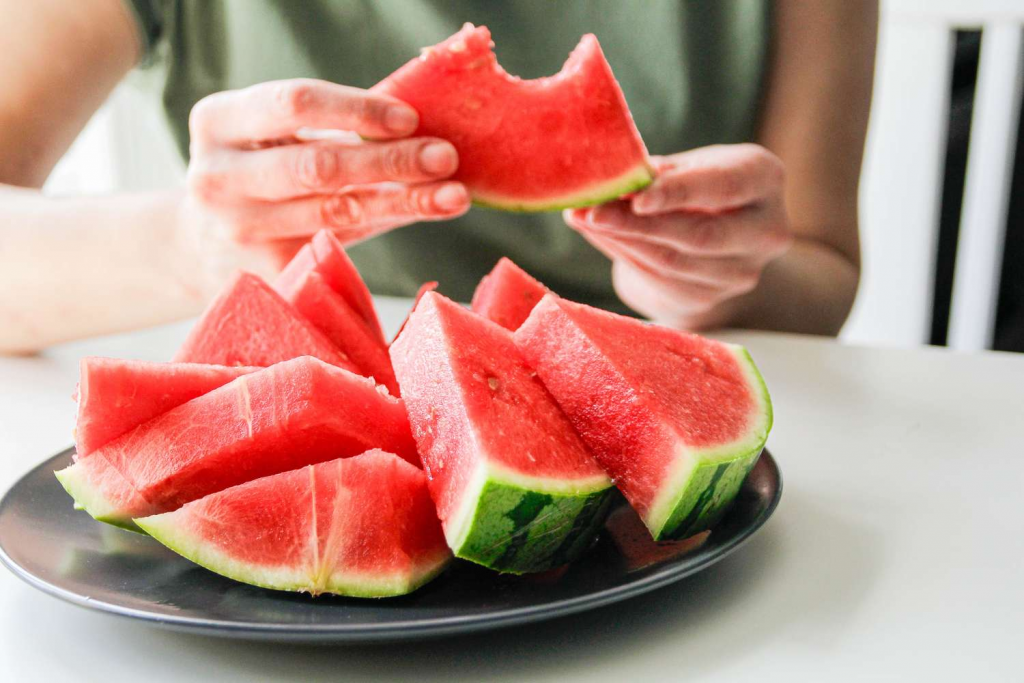
Conclusion
Watermelon is more than just a refreshing summer snack. Its high water content, natural fiber, antioxidants, and unique compounds make it a supportive ally for intestinal, liver, and kidney health. A short three-day cleanse can leave you feeling refreshed, lighter, and more energized.
Frequently Asked Questions
Is the watermelon cleanse safe for everyone? Not necessarily. People with diabetes or kidney disease should check with a doctor first.
Will I lose weight? You may lose some water weight, but the real benefit is feeling lighter and improving digestion.
Can I do it longer than 3 days? It’s best not to extend it too long, as your body needs balanced nutrients.
Disclaimer: This article is for informational purposes only. It is not a substitute for professional medical advice, diagnosis, or treatment. Always seek the guidance of your healthcare provider with any questions regarding your health or medical condition.




